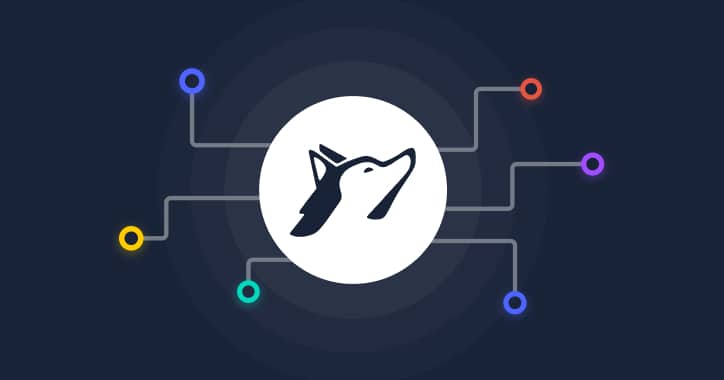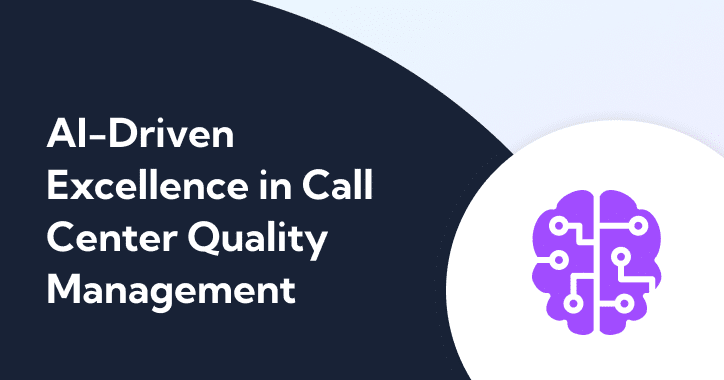As we continue our series into Key Performance Indicators (KPIs) for contact centers, we’re turning our attention to managers and supervisors.
We track just about everything in contact centers including average handle time, first-call resolution, customer satisfaction, ramp time, and dozens of other metrics to make sure we are meeting our customer service objectives. We want to make sure our workflow allows for peak efficiency and our agents are working productively.
But what about our managers? These are the folks that keep our operations running smoothly: training and coaching our agents, and working to improve overall customer satisfaction. How, if at all, are we tracking manager productivity?
What Is Manager Productivity and How Would You Track It?
As some of the higher-paid employees in your contact center, managers should be focused on strategic initiatives to improve team performance. This can take many different forms, such as hiring, training, coaching, optimizing workflow and playbooks, or handling escalations.
Unlike some of the other contact center metrics we’ve discussed, however, tracking manager productivity is a little tricker. There’s no set formula and how you track it may vary from business to business. Managers are generally rated more on overall team performance than other measures.
Some companies will measure how much of a manager’s time is spent on coaching or reviewing calls for quality assurance (QA). So, measurements may take the form of a percentage of time spent on these activities against baseline goals. Here’s the challenge. It’s easy to track how much time was spent on coaching, for example, but it’s much more difficult to assess the quality of the coaching.
However you choose to measure productivity, the most important things are to be transparent about expectations and communicate them with your management team.
Why Is Manager Productivity Important in Contact Centers?
While it may be hard to measure, when managers are being productive, you will see an improvement in other metrics. One of the keys to running an efficient contact center is managers that identify areas that are underperforming and take action for improvement. This can take the form of group or one-on-one coaching, testing workflows and playbooks, or dozens of other strategies.
When managers set goals and strive for continuous improvement, they can optimize performance for better outcomes. Over time, the workflow and playbooks get refined so that even in an industry with high turnover, agents can continue to perform at a high level.
The most productive managers will drive better performance across the board.
How Can Organizations Improve Manager Productivity?
The first step in improving productivity for your contact center managers is to reduce the manual workload as much as possible. The more processes you can automate, the more time your managers will have to train, coach, and lead their teams.
For example, managers in most contact centers spend hours every day just listening to calls for quality assurance. At best, they can spot-check agents on just a small or random sampling of contacts. They might miss big mistakes simply because they didn’t know to listen to the right call.
The right software solutions can solve this challenge and help your managers be more productive. Real-Time QA, Real-Time Coaching, and call/agent scoring let managers spend more time on strategy and improvement than just listening.
Real-Time Quality Assurance (QA)
Real-Time QA can automatically review calls. Using artificial intelligence, 100% of the calls are scored. Real-Time QA not only scores each call but also scores agent performance. This helps managers to identify patterns over time that need to be addressed with agents.
Real-Time Coaching
When areas of improvement or agent shortfalls are identified, managers are notified so they can provide immediate coaching. Rather than waiting for group meetings or scheduled coaching sessions, managers can use Real-Time Coaching to get alerts and listen in on calls. Managers can then communicate with agents to help guide them or wait until an interaction is concluded and provide on-the-spot coaching.
Call and Agent Scoring
Because every call and agent is scored, it also makes it easy to track agents’ metrics, such as win rate, sentiment, objections, and more, so managers have the data at their fingertips when providing coaching sessions.
Both Real-Time QA and Real-Time Coaching let managers spend more time on strategy and improvement than just listening.
Ongoing Training and Education
Just like everyone else in your organization, managers will benefit from coaching and training as well. Depending on the level of manager and their specific duties, you might want to consider additional training on:
- Attracting, recruiting, and hiring agents
- New agent onboarding to reduce ramp time
- Agent retention strategies
- Goal setting
- Project management
- Time management
- Effective coaching techniques
- Motivation
- Data analysis
- Playbook creation and management
Today’s most successful managers must be flexible. They must be able to analyze data and think both critically and strategically. They must create improvement plans, implement them, and measure outcomes. At the same time, they also have to master soft skills to manage interpersonal relationships that build trust and loyalty. Contact center managers may also benefit from training in communication, problem-solving, conflict resolution, empathy, self-awareness, and other soft skills.
Another area worth exploring is stress management, both for managers and team members. In fact, 87% of contact center employees report high-stress levels according to a study by Cornell University, and stress is a major contributor to employee turnover.
Stay Focused on Overall Goals
Manger productivity should not come at the expense of results, however. When measuring any metric, it’s important to keep the end goal in mind. Half of customers today say company efforts at customer support fall short and require a major overhaul. You could hit productivity metrics for the number of meetings, coaching sessions, or listening to calls but if these activities don’t lead to better outcomes for performance and improved customer experience, the metrics can be misleading.
In the end, however you measure performance and productivity for managers, stay focused on the overall goals: delivering exceptional customer service and support by every member of your team.
To learn more about how Balto can help improve your contact center productivity, contact Balto today to schedule a demo.
Coach Critical Moments in the Moment
Drive immediate agent improvement by coaching the right calls in real-time. Scale perfect conversations with Real-Time Coaching.






